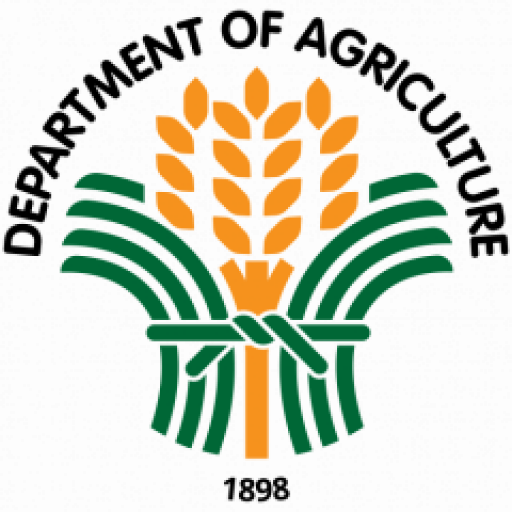Organic agriculture (OA) practitioners from Central Visayas, belonging to various organizations attend a Gender and Development (GAD) seminar today (March 28, 2025) held at a venue in Cebu City.
The participants, mostly in Cebu were from the PGS-Sugbo, Organic Agriculture Practitioner Association (OAPA) of the City of Naga, LGU Tuburan, PESTALES Agricultural Cooperative of Argao, and the Cebu Organic Agriculture Cooperative.
Cheryl Dela Victoria, the GAD Alternate Focal Person and resource speaker, shared that GAD must be implemented, not only in the national or regional level, but also at the local as well as barangay level. GAD, she said is geared for the development of every human being, whether they are men or women and whatever their gender identity is. This is to promote equality and equity as well as empowerment across all genders.
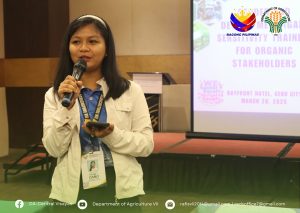
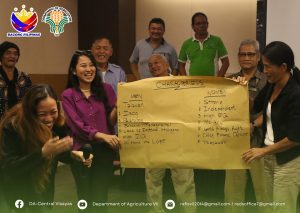
In her message, Grace Cenas, Regional Agriculture and Fisheries Council (RAFC) Chairperson and an active gender advocate, stressed that the activity was more than just a gathering of organic farmers, but also a collective effort to promote equality, sensitivity, and empowerment, particularly in rural communities.
“This movement is for the people and the earth — a commitment to sustainability. We aim to ensure food security while amplifying voices that deserve to be heard, valued, and respected,” she said.
Cena said that the training, as described is a crucial step in breaking down barriers of gender development, which still exist in society.
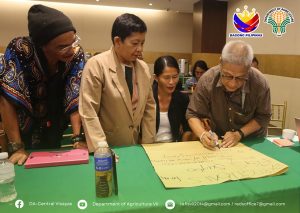
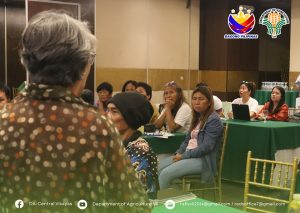
“Deep in our hearts, we know there are still barriers, we must break these down, one by one. Achieving true gender equality may take more than a hundred years, but we can shorten that timeline by putting in the effort now. We must actively practice equality and uphold our rights, starting in our homes and within ourselves.”
Despite the challenges of the organic practitioners, Cenas assured participants that the Department of Agriculture (DA) remains committed to support the organic movement.
Rey Ramos, a PGS-Sugbo member and a trainer by profession, admitted that he previously overlooked the importance of GAD,incorporating in their conducted training.
“Hindi ko ini-emphasize ang mga ito (training on GAD) in my two decades in industry; I thought it was just a given. But now, an enlightenment has come from the spirit of the people around me. I promise that this will now be my commitment as a trainer — to promote not only equality but also equity for men, women, and to all farming families,” Ramos pledged.
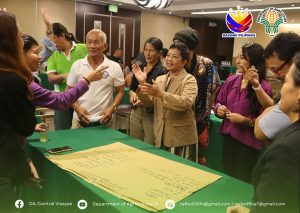
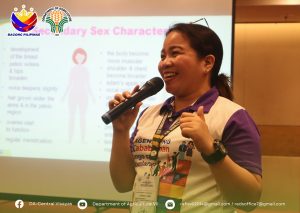
Rachelle Madrigal, resource person, underscored that GAD principles are rooted in fairness and equity, and that development is for everyone.
The participants were encouraged to take part in decision-making processes and align with organizational values that promote inclusivity.
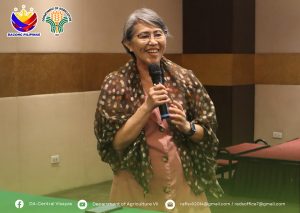
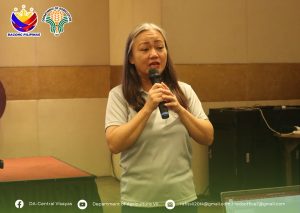
Discussions covered key topics such as gender roles, manifestations of gender biases, concepts of gender and development, SOGIESC (Sexual Orientation, Gender Identity, Gender Expression, and Sex Characteristics), and GAD historical views and mandates.
The training featured series of workshops where participants were asked to identify the characteristics of men and women, farm activity identification where men and women are involved, and the 24-hour profiling exercises.








